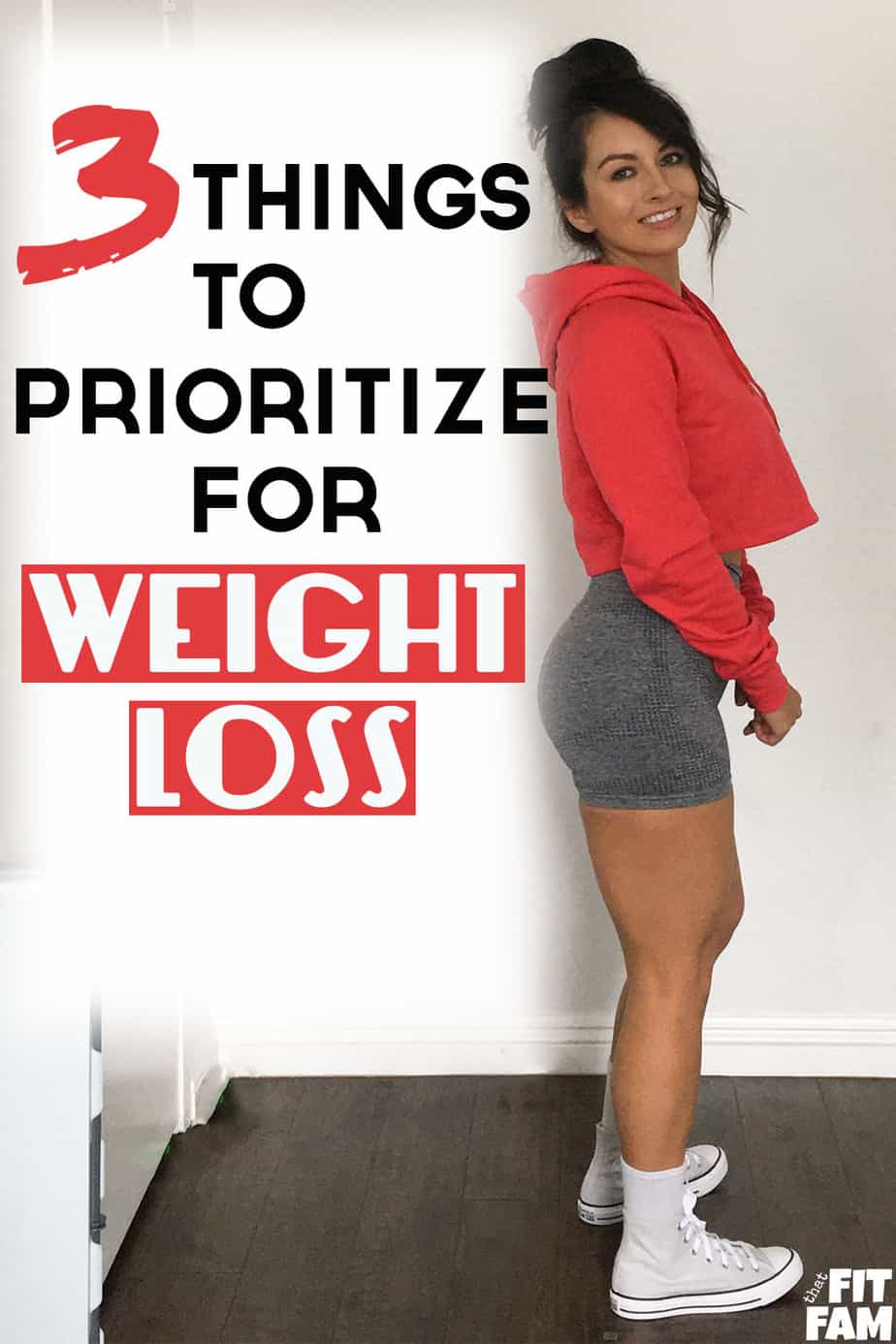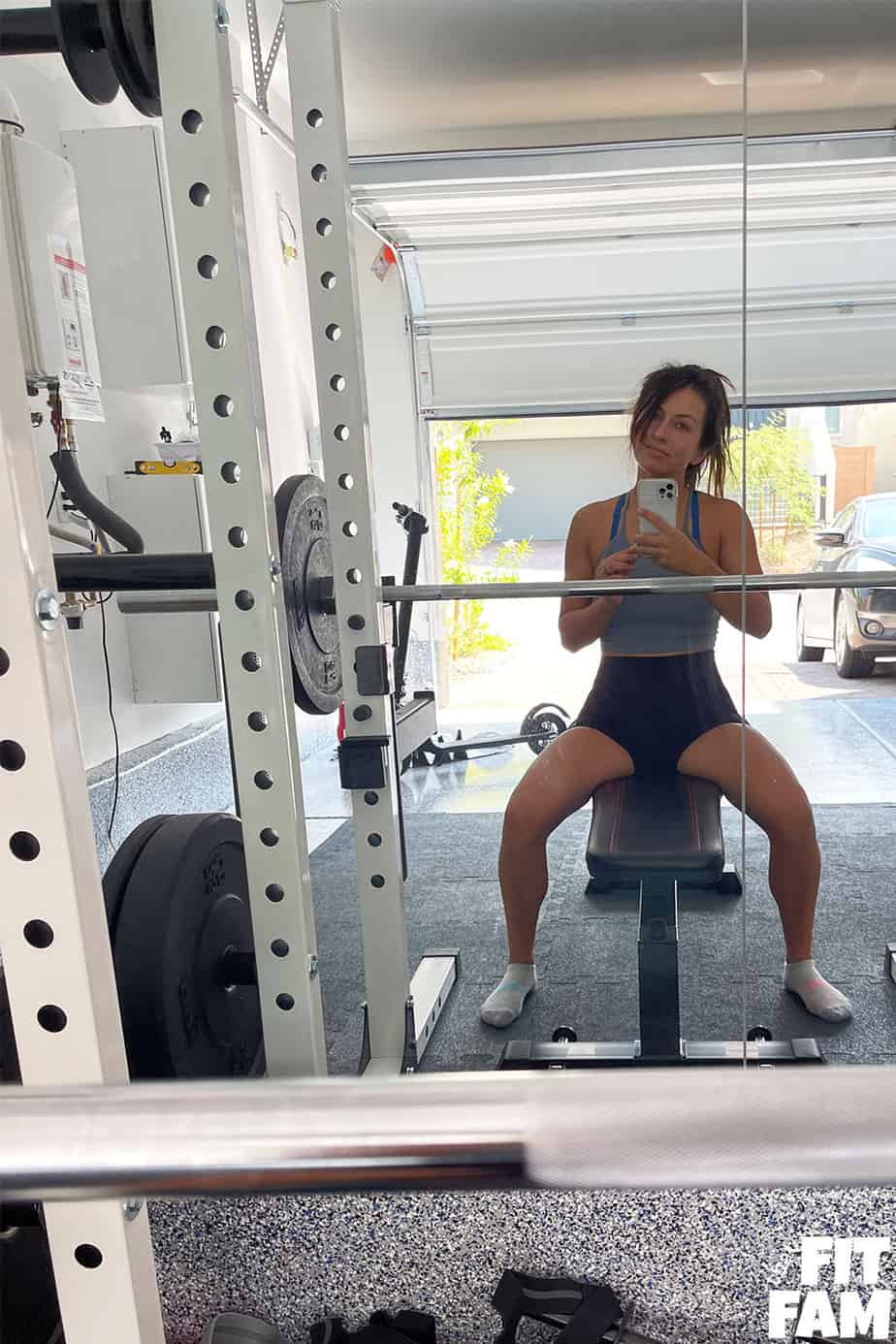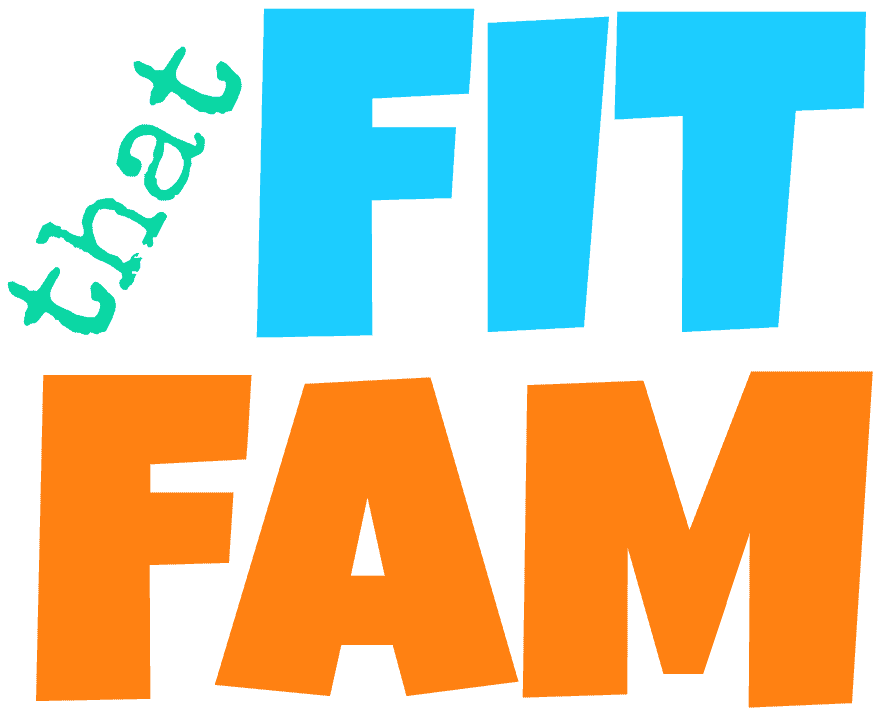I’m a big believer in simplifying the health & fitness industry. There is way too much information out there and it’s not all true. So today, let’s talk about 3 things to prioritize when you want to lose weight.
I am basing this off of my personal experience with weight loss, countless hours of research and my knowledge as a certified Nutrition Coach.
We get so much information thrown at us on a daily basis: weight loss pills, appetite suppressants, talk about protein timing, fasted cardio, juice fasts, keto, etc. It’s overwhelming.

So I’m just going to cut to the chase.
Any diet pitched to you works not because of their rules and restrictions, but because it creates a calorie deficit.
Also, the only supplements with strong supporting evidence are protein, essential amino acids, and creatine. There is also a moderate amount of evidence supporting BCAAs as well.
None of these supplements are necessary though. You can get adequate protein, essential amino acids, etc from a balanced diet. Just like vitamins, unless you have a specific deficiency, they are not necessary; they’re just helpful.
Furthermore, the only fat burning supplement with strong evidence (if used safely and moderately) to improve body composition is caffeine (Schubert et al, 2014). This is mainly because it increases your energy expenditure (calorie deficit coming up again).
Okay, now that I’ve gone over all that, we can get to the 3 things I like to prioritize for weight loss.
To lose weight you should focus on…
1.Eating protein at every meal & snack.
Do you have to eat protein at every meal? No, of course not. But it is helpful for several reasons:
- Protein will keep you fuller longer. If you are not hungry, you are less likely to binge on poor quality, convenience foods.
- Protein helps to preserve muscle mass when eating in a deficit. Muscle requires more energy to maintain than fat, so the higher percentage of muscle you have, the higher your resting metabolic rate will be than if you weighed the same weight with less muscle mass.
- The thermic effect of food (TEF) for protein is higher. TEF is basically just the amount of calories burned in order to digest & absorb the food. So you burn more calories digesting protein than you do with carbs and fats. Of course, all three macronutrients are essential for your body to function, but it is a perk of higher protein meals.
2. Moving your body
Like I’ve said before, to lose weight you need to create a calorie deficit. You can do that by eating less or moving more or both.
I love to start my day with an early morning gym session (tips for waking up early), but if the gym isn’t your thing you could also just walk more.
Just be sure to be mindful of your walking. One way our body likes to conserve energy when we are decreasing our food intake, is by moving and fidgeting less throughout the day.
It is hardly noticeable but it starts to add up. By wearing a fitness tracker to measure your steps, you can ensure you are still moving plenty with your everyday activities.

3. Rest
There are two hormones involved in appetite control: leptin and ghrelin. Ghrelin is the hunger hormone; it stimulates appetite. Leptin is the appetite suppressor, it signals to the brain that you’ve had an adequate amount of food.
Sleep deprivation can lead to an increase in ghrelin and a decrease in leptin (source). So it can cause you to eat more, which means little or no calorie deficit.
Also, sleep deprivation can increase cortisol levels. This may lead to an increase in appetite as well.
It can be hard to know where to start when you want to prioritize your health. Focusing on eating protein at each meal, moving your body more and getting enough rest are the key things that have helped me on my fitness journey.
